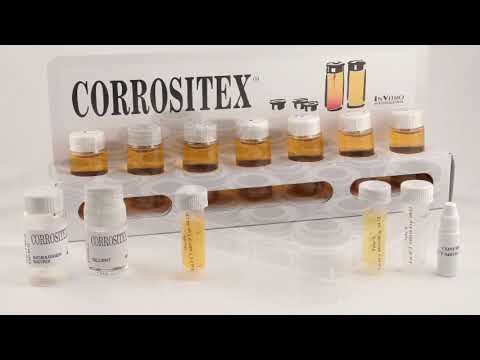The rise of vegan beauty and its challenges by INT.E.G.R.A
25 November 2024
Veganism is no longer just a dietary choice; it’s a full lifestyle movement that influences decisions from the clothes people wear to the cosmetics they use. The global demand for vegan and cruelty-free cosmetics has surged world-wide in recent years, fueled by ever more ethically conscious consumers who seek products that align with their values.
Whether a cosmetic is vegan or not is one of the most important drivers of purchasing choice with the youngest, and thus more profitable, demographics. For a product to be truly considered vegan, it must not contain animal-derived ingredients, and, crucially, it must not be tested on animals or with the use of animal-derived material at any stage.
As brands respond to this growing movement, they are faced with a critical challenge: how do we ensure the safety and efficacy of our products while avoiding animal and animal-derived testing?
This is where the scientific innovation and solutions of InVitro International methods come into play, providing cutting-edge, 100% non-animal testing methods that are both effective and ethical.

Enter InVitro Assays: A Game-Changer for Cruelty-Free Testing
InVitro International has been at the forefront of providing non-animal testing methods for decades. Their in vitro assays, such as Irritection® and Corrositex®, offer an innovative solution to the animal testing dilemma. These methods are not only scientifically validated but also meet the strict safety and regulatory requirements set by organizations like the OECD (Organization for Economic Co-operation and Development), UN GHS (Globally Harmonized System of Classification and Labelling of Chemicals) and US EPA (Environmental Protection Agency).
Irritection® is an in-vitro assay that tests for eye and skin irritation using a protein denaturation model, mimicking how human tissue would react to exposure to a particular substance.

Ocular Irritection®, the first validated in vitro macromolecular test method that can be used to identify chemicals that have the potential to induce serious eye damage as well as chemicals not requiring classification for eye irritation or serious eye damage, has been adopted by OECD as Test Guideline 496, which marks it as an internationally recognized and approved method for assessing irritation potential.
The Corrositex® assay is specifically designed to test skin corrosion.
It uses a synthetic, 100% animal-free, membrane to simulate human skin, providing results in as little as a few hours. This method offers a faster, more cost-effective alternative to traditional tests, making it especially attractive for companies that need quick turnaround times while adhering to vegan standards.
The Benefits of InVitro Testing: Ethics Meets Efficiency
- – 1. Cruelty-Free Compliance: Perhaps the most significant advantage of InVitro testing is its alignment with vegan and cruelty-free standards. For cosmetics companies eager to gain cruelty-free certifications, such as those offered by Leaping Bunny or PETA, in vitro assays provide a scientifically sound method of ensuring product safety without involving animals.
- – 2. 100% animal free: Differently from other in vitro methods that use animal cell lines and tissues from slaughterhouses, InVitro assays are completely 100% animal free and can be used for the claim “100% vegan testing”.
- – 3. Regulatory Acceptance: One of the challenges for cosmetics brands is meeting global regulatory requirements, especially in regions where animal testing is still mandated for certain product categories. InVitro International’s assays have been validated and accepted by leading regulatory bodies, including the OECD. Irritection® and Corrositex® are both listed as reliable methods for identifying eye and skin hazards under international regulations. This means companies using these methods can maintain compliance in key markets like Europe and the U.S. while staying true to their ethical commitments.
- – 4. Cost and Time Efficiency: Traditional animal testing methods can be time-consuming and expensive, often requiring weeks or months for results. In contrast, assays like Corrositex® provide results in hours, enabling faster product development cycles. Moreover, in vitro testing generally reduces costs associated with animal care, testing facilities, and extended timelines.
- – 5. Environmental Sustainability: Beyond ethical considerations, in vitro assays contribute to environmental sustainability. With fewer resources required to maintain animal tissue cultivations and a reduced carbon footprint, these tests are a greener alternative to conventional and other in vitro methods. As brands increasingly prioritize sustainability alongside ethics, non-animal testing methods support broader environmental goals.
The Future of Vegan Cosmetics Testing
InVitro International’s innovative in vitro assays are proving that ethical testing does not have to come at the expense of scientific rigor. As the vegan cosmetics market expands, these tests will play an increasingly critical role in ensuring that brands can deliver safe, cruelty-free products to their consumers. By adopting these methods, cosmetics companies can not only meet regulatory and ethical standards but also lead the industry toward a more compassionate, sustainable future.
The era of animal testing is ending, and the revolution is happening now—with in-vitro assays like Irritection® and Corrositex® paving the way.
CONTACT
Marco Majidi
marcomajidi@integracosmetics.com
https://www.integracosmetics.com/en/









 Follow us on Linkedin!
Follow us on Linkedin!
You must be logged in to post a comment.